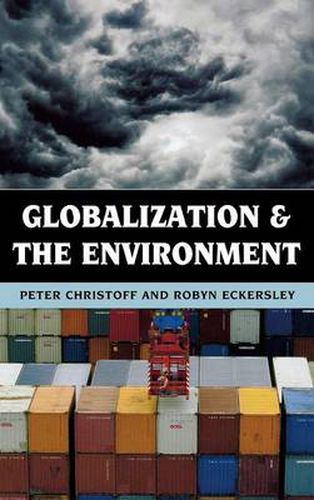Readings Newsletter
Become a Readings Member to make your shopping experience even easier.
Sign in or sign up for free!
You’re not far away from qualifying for FREE standard shipping within Australia
You’ve qualified for FREE standard shipping within Australia
The cart is loading…






This book by two leading scholars offers the first systematic analysis of the relationship between globalization and the environment from the early Modern period to the present. Peter Christoff and Robyn Eckersley develop a broad conceptual framework for understanding the globalization of environmental problems and the highly uneven, often faltering, international political response. The authors develop linkages between economic globalization and environmental degradation and explore a range of key global environmental problems-focusing on the two most challenging of all: climate change and biodiversity loss. Finally, they critically explore the challenges of environmental governance in a world defined by global capitalism and sovereign states. Providing a normative framework for evaluating global environmental governance, they suggest alternative institutional and policy responses. Through a rich set of case studies, this powerful book will help readers grasp the systemic causes of global environmental degradation as well as the myriad opportunities for reform of global environmental governance.
$9.00 standard shipping within Australia
FREE standard shipping within Australia for orders over $100.00
Express & International shipping calculated at checkout
Stock availability can be subject to change without notice. We recommend calling the shop or contacting our online team to check availability of low stock items. Please see our Shopping Online page for more details.
This book by two leading scholars offers the first systematic analysis of the relationship between globalization and the environment from the early Modern period to the present. Peter Christoff and Robyn Eckersley develop a broad conceptual framework for understanding the globalization of environmental problems and the highly uneven, often faltering, international political response. The authors develop linkages between economic globalization and environmental degradation and explore a range of key global environmental problems-focusing on the two most challenging of all: climate change and biodiversity loss. Finally, they critically explore the challenges of environmental governance in a world defined by global capitalism and sovereign states. Providing a normative framework for evaluating global environmental governance, they suggest alternative institutional and policy responses. Through a rich set of case studies, this powerful book will help readers grasp the systemic causes of global environmental degradation as well as the myriad opportunities for reform of global environmental governance.